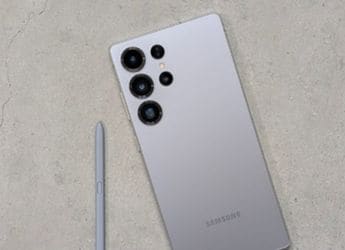- Home
- Science
- Science News
- ESA's Aeolus Satellite Performs Evasive Manoeuvre to Dodge SpaceX Starlink 44 Satellite After Missed Message
ESA's Aeolus Satellite Performs Evasive Manoeuvre to Dodge SpaceX Starlink 44 Satellite After Missed Message
SpaceX said that what appeared to be a hard-nosed stance was actually the result of a communications error.

Photo Credit: ESA
Artist's illustration of European Space Agency's Aeolus satellite
A European space probe has performed an evasive manoeuvre to avoid a possible collision with another satellite after its operator, private firm SpaceX, failed to receive a warning message.
Officials at the European Space Agency said Tuesday that engineers decided to move the Aeolus satellite into a higher orbit after being told last month by SpaceX that it had no intention of changing the course of its Starlink 44 satellite.
SpaceX said that what appeared to be a hard-nosed stance was actually the result of a communications error.
The two operators last exchanged messages August 28, when the probability of a collision was far below the threshold for evasive manoeuvre, the California-based company said in a statement.
The US Air Force's 18th Space Control Squadron, which monitors objects in orbit, later raised the probability of a collision to more than 1 in 10,000, requiring an evasive manoeuvre.
"But a bug in our on-call paging system prevented the Starlink operator from seeing the follow-on correspondence on this probability increase," SpaceX said, adding that had the message been seen it would have coordinated with the Europeans to determine who should give way.
The company said it is investigating the issue and plans to implement "corrective actions."
The European Space Agency said the manoeuvre didn't affect operations of Aeolus, which was launched in August 2018 to measure global wind speeds and directions, thereby improving weather forecasts.
But ESA said the incident, along with the absence of firm traffic rules in orbit, highlighted the need to improve coordination among satellite operators.
"Today, this negotiation is done through exchanging emails, an archaic process that is no longer viable as increasing numbers of satellites in space mean more space traffic," said Holger Krag, head of space safety at ESA. The agency is proposing an automated system to deal with collision risk.
A crash could have sprayed thousands of pieces of debris across a wide area, greatly increasing the chances of further collisions between satellites and clouds of space junk.
While satellites have to dodge each other from time to time, "it is really the first time that we had to do it with one of these big constellations," said Klaus Merz of ESA's space debris office.
Starlink 44, which was launched in May, is part of a so-called mega constellation that will grow to thousands of satellites and with which SpaceX plans to provide internet services around the globe.
Merz noted that despite not hearing from SpaceX anymore, at least European Space Agency engineers knew which course Starlink 44 was on and were able to dodge the satellite.
"In the end the key information we needed was there," he said.
Catch the latest from the Consumer Electronics Show on Gadgets 360, at our CES 2026 hub.
Related Stories
- Samsung Galaxy Unpacked 2025
- ChatGPT
- Redmi Note 14 Pro+
- iPhone 16
- Apple Vision Pro
- Oneplus 12
- OnePlus Nord CE 3 Lite 5G
- iPhone 13
- Xiaomi 14 Pro
- Oppo Find N3
- Tecno Spark Go (2023)
- Realme V30
- Best Phones Under 25000
- Samsung Galaxy S24 Series
- Cryptocurrency
- iQoo 12
- Samsung Galaxy S24 Ultra
- Giottus
- Samsung Galaxy Z Flip 5
- Apple 'Scary Fast'
- Housefull 5
- GoPro Hero 12 Black Review
- Invincible Season 2
- JioGlass
- HD Ready TV
- Laptop Under 50000
- Smartwatch Under 10000
- Latest Mobile Phones
- Compare Phones
- Tecno Spark Go 3
- iQOO Z11 Turbo
- OPPO A6c
- Samsung Galaxy A07 5G
- Vivo Y500i
- OnePlus Turbo 6V
- OnePlus Turbo 6
- Itel Zeno 20 Max
- Lenovo Yoga Slim 7x (2025)
- Lenovo Yoga Slim 7a
- Lenovo Idea Tab Plus
- Realme Pad 3
- Garmin Quatix 8 Pro
- NoiseFit Pro 6R
- Haier H5E Series
- Acerpure Nitro Z Series 100-inch QLED TV
- Asus ROG Ally
- Nintendo Switch Lite
- Haier 1.6 Ton 5 Star Inverter Split AC (HSU19G-MZAID5BN-INV)
- Haier 1.6 Ton 5 Star Inverter Split AC (HSU19G-MZAIM5BN-INV)







![[Sponsored] Haier C90 OLED TV | Dolby Vision IQ, 144Hz OLED and Google TV in Action](https://www.gadgets360.com/static/mobile/images/spacer.png)









